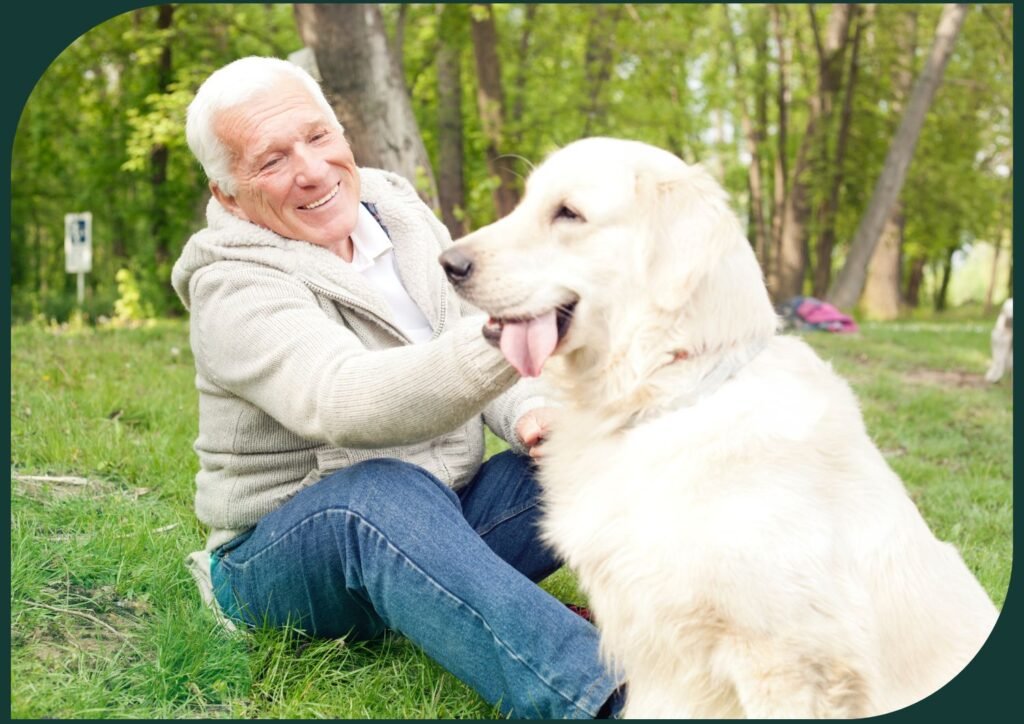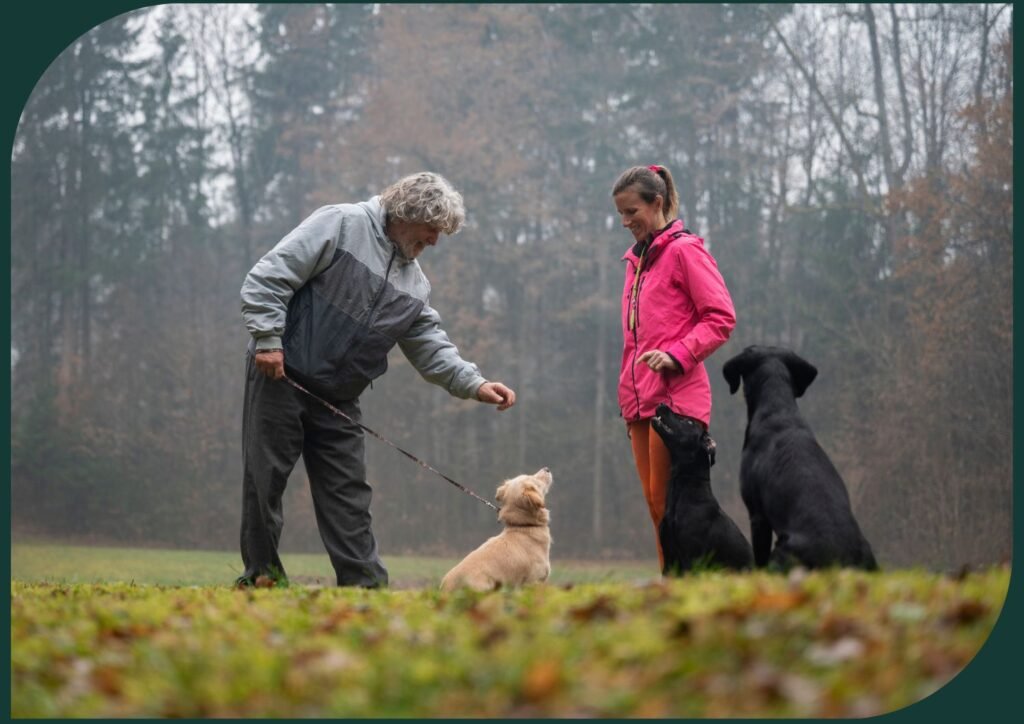Senior Pets: 3 Best Life-Enhancing Health Benefits

Last Updated on June 26, 2025 by Rose Ann
Looking for the perfect companion for your golden years? Senior pets might be the answer you’ve been searching for. These experienced furry friends offer unique benefits that make them ideal partners for retirement living.
Recent research confirms that the companionship of senior pets provides remarkable health advantages for older adults. Studies show that regular interaction with pets lowers stress hormones like cortisol while boosting oxytocin—known as the “feel-good hormone”—resulting in reduced blood pressure, decreased anxiety, and improved cardiovascular health. The physical benefits extend beyond physiological changes, as even gentle daily walks with a senior dog help maintain mobility and muscle strength without the high-energy demands of younger pets.
Beyond physical health, senior pets offer profound emotional support. Their calm, established personalities make them particularly well-suited for seniors seeking companionship without the challenges of training puppies or kittens. Many are already house-trained and have developed the emotional intelligence to sense when their owners need comfort or companionship.
Senior pets also create opportunities for meaningful social connections. Dog walking routinely leads to neighborhood interactions, while shared interests with other pet owners can blossom into friendships. For seniors experiencing loneliness after retirement or the loss of loved ones, these social connections prove invaluable.
The bond between seniors and senior pets creates a special synergy—both understand the value of quiet companionship, gentle exercise, and unconditional love. While younger pets might require intensive training and higher energy activities, senior pets match the pace and preferences of retirement living perfectly.
Discover how adopting a senior pet could transform your golden years with companionship, improved health, and renewed purpose—a decision that benefits both you and a deserving animal seeking a loving home.
Great Joyful Addition to Your Senior Years
As we journey through the different stages of life, our needs and desires evolve. For many, the senior years bring a longing for companionship that is constant, uncomplicated, and genuine. This is where senior pets come into play, offering a unique form of companionship that is especially beneficial for the well-being of older adults.

Senior pets have already developed their personalities, making them more predictable and often calmer than younger animals. They’re typically past destructive behaviors like chewing furniture or having accidents inside the home. Instead, they offer a steady, dependable presence that can be incredibly comforting during life transitions or quiet days at home.
What makes senior pets truly special is their ability to sense and respond to your emotions. Many senior dog and cat owners report that their pets seem to understand when they’re feeling sad or anxious, offering comfort without being asked. This emotional intelligence creates a bond that goes beyond simple companionship—it’s a supportive partnership that helps both pet and owner thrive.
Research published by the University of Michigan found that pet owners over 50 experienced less loneliness and reported better general well-being than non-pet owners. The study noted that the routine care of a pet provided structure and purpose, particularly important for those adjusting to retirement or living alone.
Prefer to listen rather than read?

The Science Behind the Joy: How Senior Pets Improve Your Health
Let’s delve into how senior pets can positively impact your physical and mental well-being. Recent research has revealed fascinating insights into the health benefits of the human-animal bond, particularly for older adults.
Studies from Johns Hopkins Medicine have shown that simply petting a dog lowers the stress hormone cortisol while increasing levels of oxytocin, the “feel-good hormone” that’s also released during positive human interactions. This hormonal change helps reduce stress, lower blood pressure, and create feelings of calm and connection.
Regular interaction with pets has been linked to improved heart health. A 2023 study published in the Journal of the American Heart Association found that pet owners had lower blood pressure and healthier cholesterol levels than non-owners, potentially reducing their risk of cardiovascular disease.
Beyond physical benefits, senior pets provide significant psychological support. Research from the Human Animal Bond Research Institute found that pets help people manage anxiety and depression, with 87% of pet owners reporting that their animal companions improve their mental health. The consistent routine of caring for a pet also helps maintain cognitive function and provides a sense of purpose, which can be especially valuable during retirement.
Walking a dog, even at a gentle pace, provides regular exercise that maintains mobility and muscle strength—critical factors in healthy aging. These daily walks aren’t just good for physical health; they also provide opportunities to connect with neighbors and nature, enhancing overall well-being.
What about those concerned about the impact of aging on their ability to care for a pet? The beauty of adopting a senior pet is that they typically require less intensive exercise and training than younger animals. Their energy levels often match those of older adults perfectly, creating a harmonious partnership that benefits both.
Senior Pets: The Ultimate Anxiety Busters You Never Knew You Needed
Have you ever noticed how your mood lifts when a playful puppy greets you, or how soothing it is to stroke a cat’s fur? That’s not just coincidence—it’s science at work!
Recent research published in 2024 has confirmed that the bond between humans and pets goes far beyond simple companionship. When seniors interact with their pets, something remarkable happens inside their bodies: stress hormones like cortisol decrease while oxytocin—often called the “love hormone”—increases. This hormonal shift creates feelings of calm and contentment that can significantly reduce anxiety.
According to a study published in the Journal of Frontiers in Psychology, this stress-reducing effect is particularly powerful in senior-to-senior relationships. When older adults interact with senior pets, both experience physiological benefits. The study found that senior pet owners had lower blood pressure and reported less anxiety than their counterparts without pets.
These calming effects extend beyond just momentary relief. Regular interaction with pets has been shown to lower overall stress levels, improve sleep quality, and even reduce symptoms of depression. For seniors who may be experiencing life transitions such as retirement or living alone, these benefits can be truly transformative.
At the same time, caring for a pet provides structure and routine, which psychological research has shown helps reduce anxiety by creating predictability. Having a reason to get up in the morning and follow regular feeding and walking schedules helps maintain a healthy daily rhythm that benefits mental health.

Fit and Happy: The Physical Fitness Perks of Owning Senior Pets
Did you know that your furry friend at home could be your secret to staying fit and healthy? Yes, I’m talking about your dog! These four-legged companions as senior pets are not just cute and cuddly; they are like personal trainers, encouraging us to move more.
Imagine a life where your daily routine includes not just work, chores, or screen time, but also joyous, energetic walks or runs with a loyal companion. That’s the life a dog can offer you! Taking your dog out for a walk or a run is more than just a routine; it’s a fun and effective way to inject some much-needed physical activity into your daily life. While your dog gets to explore and enjoy the outdoors, you benefit too. Think of it as a win-win situation!
Research from BMC Public Health Journal shows that people who own dogs walk an average of 22 minutes longer each day than non-dog owners. Even a low-intensity 20-minute daily walk can significantly improve heart health, lower blood pressure, and reduce stress levels. For seniors, these regular walks are particularly valuable as they help maintain mobility, balance, and cardiovascular health without high-impact exercise.
But it’s not just about weight management. These regular walks or runs with your dog improve your cardiovascular health. Think about it like this: every time you’re out there with your dog, you’re giving your heart a mini workout, kind of like giving your heart a regular tune-up.
Now, let’s talk about why this is especially important for seniors. As we age, maintaining physical activity becomes crucial yet often challenging. Senior pets, particularly dogs, provide the perfect motivation for regular, gentle exercise. A 2024 study published in the Journal of Physical Activity and Health found that seniors with dogs had better physical function, fewer limitations in daily activities, and fewer doctor visits compared to those without pets.

Senior Pets: Your Secret to More Meaningful Social Engagements
Have you ever noticed how a simple walk with your dog can turn into a social event? Or how a cat’s playful antics at a pet cafe draw smiles and conversations from strangers? This isn’t just a coincidence.
Dogs and cats do much more than provide companionship at home—they act as remarkable social connectors in our communities. That friendly golden retriever or curious poodle creates natural conversation starters wherever you go. A 2023 study published in the Journal of Social Psychology confirmed what many pet owners already know intuitively: people with pets are 60% more likely to get acquainted with their neighbors than those without pets, with dog walking ranking as the third most effective way people build new social connections.

For seniors, these pet-facilitated interactions can be especially valuable. As we age, maintaining social connections becomes both more important and sometimes more challenging. The simple routine of walking a dog or visiting pet-friendly establishments creates natural opportunities for conversation and community building without the awkwardness that sometimes comes with meeting new people.
Pets are social superstars, forming connections and sparking conversations with strangers, creating unique bonds. When you take your dog to a local park or participate in pet-related events, you’re stepping into a community of fellow pet lovers. These shared interests provide instant conversation starters and the foundation for meaningful relationships.
It’s easier to strike up a conversation when you have something in common, like the love for pets. Such interactions can evolve into friendships, providing a support network that’s both emotionally fulfilling and practical.
Now, let’s delve a bit deeper. Pets do more than just help us meet people; they can be a lifeline for those experiencing loneliness. This is particularly true for seniors living alone or those going through challenging times. The companionship of a senior pet provides more than just company. It’s a source of unconditional love and non-judgmental support. Pets listen without interrupting, offer comfort without conditions, and are always there, bringing a sense of stability and routine to our lives.
If you have a pet, embrace these opportunities for social connection. Take your dog to the park, join a pet club, or participate in community pet events. These activities are not just good for your pet; they’re beneficial for your social and emotional health.

A Dog’s Life: Our Best and Oldest Friends
Of all the animals that people now keep as pets, researchers say dogs were probably the first to join our ancestors around their campfires around 15,000 to 30,000 years ago.
The dogs that senior pet owners keep as companions and helpers today descend from an extinct species of wolf. The species once hunted the vast landscape of mountain ranges and forests that stretched north to south from Northern Russia to Southern Pakistan; and east to west from the Kamchatka Peninsula to what are now Spain and Portugal.
While it is impossible to determine how early humans managed to domesticate a wild wolf species, most scientists believe the process happened over thousands of years. Scientists have found DNA evidence to suggest that the domestication process likely first began in Siberia.
Perhaps the wolves began by eating scraps and leftover food that accumulated around human settlements and hunting camps. Many generations later, humans may have drawn the animals closer by feeding them. Still later, people may have welcomed the wolves into their homes.
Regardless of how humans first domesticated the modern dog’s wolf ancestor, scientists are certain that people began to breed the animals for selected traits. The dog breeds senior pet owners keep today are a product of this human-induced selective breeding. For example, humans bred German shepherds for their ability to herd and protect livestock. They bred Labrador retrievers to collect game felled by hunters.
As implied by their name, people first bred bulldogs for bull-baiting, a brutal sport that involved siccing dogs upon tethered bulls. Bull-baiting aficionados needed dogs that were strong, tenacious, and muscular for this specific purpose.

Aging Dogs Behave Like Aging People
Exactly why people chose to dogs as their first pets is a matter of conjecture. But – apart from their useful hunting and protective instincts – the choice just might have to do with the fact that dogs share much more in common with humans than most other animals we now domesticate.
Dogs undergo stages in their life in ways that can be uncannily similar to the ways that people age. These similarities are so apparent, and so poignant, that poets from Homer to Pablo Neruda have written about them. In fact, more and more dog-loving civic organizations see dogs as good models for human aging because they suffer from its pangs in many of the same ways that people do.
Like humans, dogs often experience a decline in energy levels as they age. They become less active than they were in their younger years. Aging dogs and humans commonly experience joint stiffness, arthritis, and other mobility issues, too. This should be obvious to any senior pet owner who has watched a weary, white-bearded canine friend slowly rise to all fours for one more walk.
They may have difficulty climbing stairs or they may struggle to get up from lying down. In their old age, dogs also often demonstrate changes in sleeping habits and personality.
Old dogs, like older people, may become more irritable, anxious, or clingy, or they may show signs of cognitive decline such as confusion or disorientation. Research from Vienna also shows that dogs mellow as they age in the same way that most humans do.

Mature Personalities
Even more fascinating, the findings of the same study show that some dogs – like some people – are just “born old,” meaning they are markedly steady and mature even as pups: as though they were ready for a rocking chair, reading glasses, and perhaps a walking cane.
One of the authors of the Vienna study, Borbalu Turcsan of Eötvös Loránd University in Budapest, even noted that the personalities of the steady and mature dogs – just like those of their human counterparts – don’t change much over time.“People with more mature personality profiles change less as they age,” says Turcsan. “And we found exactly the same in the case of dogs.”
These similarities are probably why most senior pet owners favor dogs over cats and birds. Data from the University of Michigan’s National Poll on Healthy Aging indicates that dogs are the most common pet among Americans aged 50 to 80. The remainder of the senior pet owners who responded to the poll said they kept cats and small animals, such as birds and hamsters.
Who Rescued Who?
Humans are said to grow more easygoing and affable with age. While we are certain quite a few of us can think of a few exceptions in our own families, statistics seem to support this popular assumption. To drive home this point, the researchers in Vienna compared an aging Labrador retriever to the actor, Tom Hanks.
Why Labrador retrievers? Because those were the dogs available to the researchers who undertook the study. Why Tom Hanks? Because – well – who does not like Tom Hanks? While senior pet owners might look sadly upon the signs of aging in a beloved dog, people are generally comforted by the sight of a beloved Tom Hanks aging alongside his fans.
In ‘mellowing’ together like Tom Hanks, the bond between senior pet owners and their canine companions can become as strong as the friendships that people form with each other. Such was the subject of a viral video that melted countless hearts all over the world recently. The video – first posted on TikTok – features the bond between an 81-year-old man and his pet rescue dog, Ellie.
The clip captures the pair happily visiting garden centers and dining at tables together. The video’s creator mentions in the post that the senior pet owner and his canine companion even “look alike”. “My dad and his rescue dog, Ellie, are inseparable,” the video’s creator wrote across the post. The video is humorously captioned: “Who rescued who?”
The Takeaway
The bond between humans and their pets is a unique and enriching one, providing emotional, physical, and social benefits. Think about how a senior pet could transform your daily routine.
The joy of waking up to a loyal companion, the comfort of their presence throughout the day, and the satisfaction of caring for another being – these experiences enrich life in profound ways. These pets don’t just fill your home; they fill your heart with love and purpose.
So, are you ready to welcome a new, loving member into your life? The decision to adopt a senior pet could be one of the best choices you make for your well-being. It’s not just about giving a home to an animal in need; it’s about enhancing your own quality of life with companionship, activity, and social interaction.
Reach out to a local shelter or a pet adoption agency today and take the first step towards a rewarding friendship that will bring joy to both you and your new senior pet.
Frequently Asked Questions
- How can I find a senior pet to adopt?
- Many animal shelters and rescue organizations have senior pets looking for homes.
- You can also search online pet adoption sites specifically for senior animals.
- Attend adoption events in your community which often feature pets of all ages. Ask your veterinarian if they know of any senior pets needing homes.
- Can these pets adjust to a new home?
- Absolutely! These pets are often remarkably adaptable. They can quickly become comfortable in a new home and form strong bonds with their new owners. Their past experiences usually make them more relaxed and accepting of new environments compared to younger pets. Most senior pets settle into a routine within a few weeks, especially when given patience, consistency, and plenty of gentle affection during the transition period.
- What should I consider before adopting a senior pet?
- Consider your lifestyle and physical capabilities to ensure a good match. Think about the pet’s health needs, as senior pets may require more veterinary care than younger animals. Be prepared for potential medical expenses or ask about pet insurance options. Assess your living situation to make sure it’s suitable for the specific type and size of pet. Also consider the financial aspect of pet care, including food, grooming, and medical treatments.
- Are senior pets good for first-time pet owners?
- Senior pets are excellent for first-time pet owners! They’re typically calmer, already trained, and have established personalities, making them more predictable than puppies or kittens. They usually require less intensive training and supervision, which can make the transition to pet ownership smoother. Their moderate energy levels are perfect for those new to the responsibilities of pet care, and many senior pets are already socialized and well-behaved around people.
- What are the benefits of adopting a senior pet versus a younger one?
- Senior pets come with many advantages over younger animals. They’re usually already house-trained, reducing the time and frustration of training. Their personalities are fully developed, so you know exactly what type of companion you’re getting. They typically have lower energy levels, requiring less exercise and supervision. Senior pets often show immense gratitude and form deep bonds with their adopters. And perhaps most importantly, adopting a senior pet gives these deserving animals a second chance at happiness in their golden years.
- How can I help my pet stay healthy?
- Regular veterinary check-ups are essential, ideally twice yearly for early detection of age-related conditions. Provide a balanced diet formulated for senior pets to support their changing nutritional needs. Maintain gentle, regular exercise appropriate for their ability level to preserve mobility and muscle tone. Keep your pet at a healthy weight to reduce strain on joints and organs. Dental care is crucial for senior pets, so incorporate tooth brushing or dental treats into their routine. Mental stimulation through toys, puzzles, and interaction helps keep their mind sharp.
- What kind of exercise is appropriate for senior pets?
- Gentle, low-impact activities are best for senior pets. For dogs, short, more frequent walks at a moderate pace are often better than long hikes. Swimming is excellent exercise for seniors with joint issues as it provides resistance without impact. Indoor play sessions with soft toys can provide both physical and mental stimulation. Always watch for signs of fatigue and allow plenty of rest between activities. Consult your veterinarian for specific exercise recommendations based on your pet’s health condition and breed.
- How can I make my home more comfortable for a senior pet?
- Create a comfortable resting area with supportive bedding in a quiet, easily accessible location. Consider providing ramps or steps to help them access furniture or elevated areas. Use non-slip flooring or rugs to prevent falls and injuries. Elevate food and water dishes to reduce strain on their neck. Maintain a consistent temperature as senior pets may be more sensitive to heat and cold. Keep their living space organized and maintain a consistent layout to help pets with declining vision navigate confidently.
References
- Frontiers in Veterinary Science. (2023). Age Modifies the Association Between Pet Ownership and Cardiovascular Disease
- Psychosocial and psychophysiological effects of human-animal interactions: The possible role of oxytocin.
- Human Animal Bond Research Institute (HABRI). (2024). Healthy Aging.
- Johns Hopkins Medicine. (2024). The friend who keeps you young: How pets benefit senior health.
- Shelter Animals Count. (2025). 2024 Statistics: National Database of Animal Shelters and Rescues.
Disclaimer
The content provided on MySeniors.World is for informational purposes only and is not intended as either financial or medical advice. Always consult a qualified professional before making any investment or health-related decisions.
Posts may contain affiliate links, meaning we earn a commission – at no additional cost to you, if you click through and make a purchase. Your support helps us continue providing valuable content.





